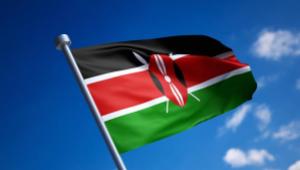It has signalled that it will explore Chinese and Japanese bonds and Islamic financing instruments in a return to international markets before the end of June to raise an estimated KSh250 billion ($2.5bn).
Latest data from the Central Bank of Kenya put the country’s total debt in February at KSh5.4 trillon ($53.6bn), up from KSh5.1trn in September 2018, and analysis by the country’s Institute of Economic Affairs has highlighted an upward trend of debt to GDP from 48% in 2013-14 to 58% in 2017-18.
In the country’s latest budget for the 2019-20 financial year, the Treasury revealed that the government intends to explore new bonds in an effort to diversify sources of external debt.
Debt is being driven by expansionary budgets as the government spends on infrastructure projects, such as railways, to spur economic growth as well as a shortfall in tax revenues, which have resulted in a widening deficit – currently put at 6.3% of GDP.
Government spending has been on an upward trend over the last decade from 22% of GDP in 2008-09 to 27% in 2017-18 and, as revenues have failed to keep pace, deficits have widened.
In recent years China has become Nairobi’s biggest lender – now accounting for 70% of foreign debt – as Kenya seeks infrastructure financing and Beijing expands foreign lending under its Belt and Road initiative.
China has recently been urged to keep a closer eye on the infrastrucutre debts that are mounting up in other countries as a result of the project.
In October, the IMF raised its assessment of the chance of Kenya’s external debt distress to moderate from low, but Kenya’s Treasury insists the country’s debts are sustainable and that it has put in place robust measures to ensure these do not spiral out of control.
Amid concerns about repayment, Treasury secretary Henry Rotich said late last year that nominal debt-to-GDP is still sustainable at 55% – which was much lower than the IMF’s 74% ceiling.
However, the IEA cautions that: “There is a high rate of accumulation of new debt and debt service to revenue ratio threshold breached, and this means a shock in revenue could affect the ability to repay debt.”
The government says it will now explore new bonds including renminbi-denominated Chinese Panda bonds, yen-denominated Japanese Samurai bonds, green bonds, Sukuk bonds and diaspora bonds targeting Kenyans living abroad.














